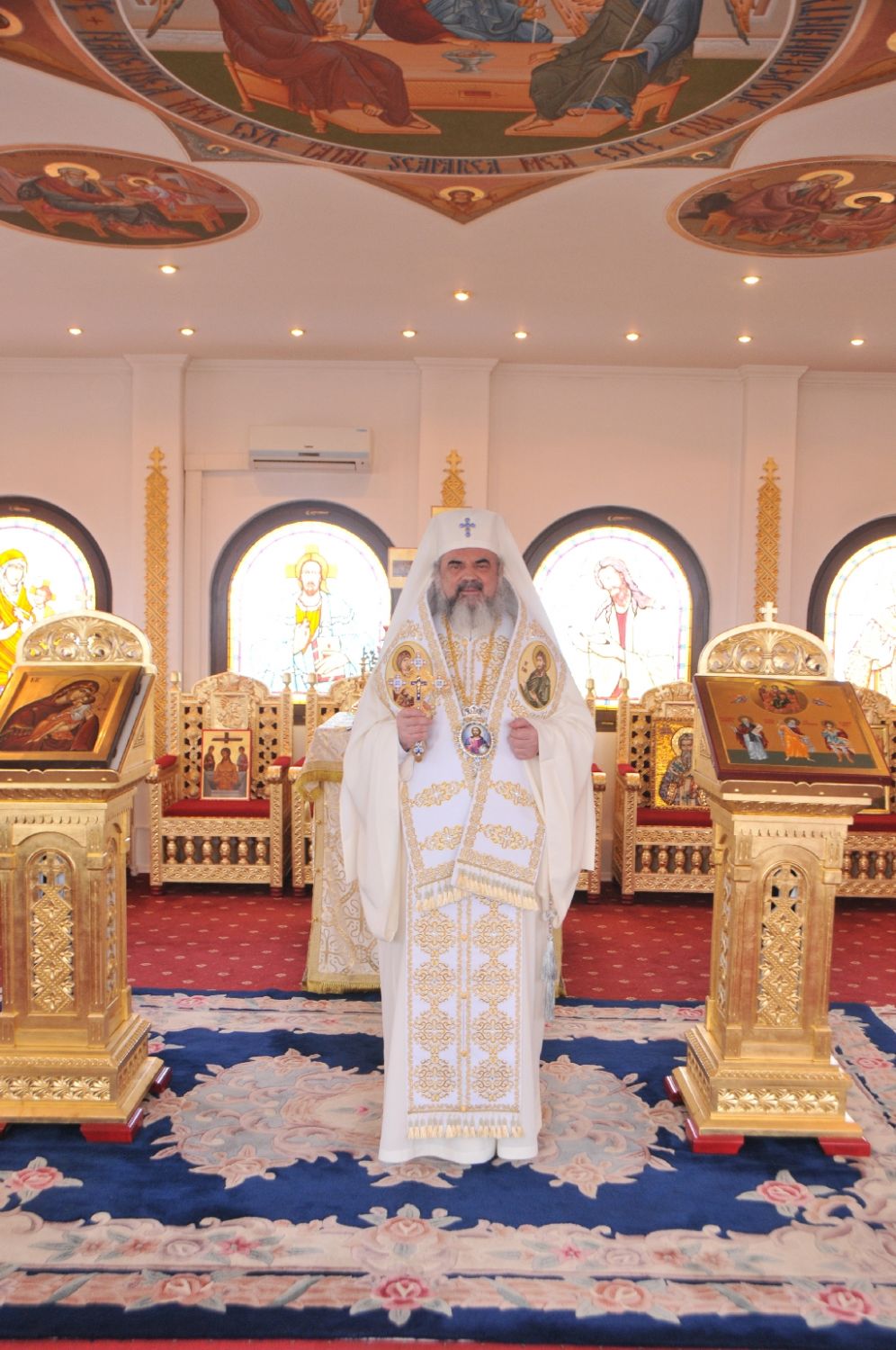Saint Gregory Palama is the Teacher of Repentance
 On 11 March 2012, His Beatitude Daniel, Patriarch of the Romanian Orthodox Church delivered a sermon in the chapel of Saint Gregory the Enlightener of the Patriarchal Residence in which he interpreted the significance of the evangelical pericope of the 2nd Sunday of the Lent or of Saint Gregory Palama which presents the Healing of the Paralysed man of Capernaum.
On 11 March 2012, His Beatitude Daniel, Patriarch of the Romanian Orthodox Church delivered a sermon in the chapel of Saint Gregory the Enlightener of the Patriarchal Residence in which he interpreted the significance of the evangelical pericope of the 2nd Sunday of the Lent or of Saint Gregory Palama which presents the Healing of the Paralysed man of Capernaum.
Thus, His Beatitude mentioned that the evangelical pericope read today was an urge to help the sick and to solidarity with one’s neighbour.
The Primate of the Romanian Orthodox Church has also pointed out the need to heal the soul because the diseases are a consequence of our sins.
“First of all we must try to heal the soul suffering from sin in our life, which can be done through repentance, through the confession of sins and getting the forgiveness of the sins by Christ with the help of the father confessor. This is why, during the Easter Lent, we must try to heal the soul much more than the body. We must heal the soul because very often our physical diseases are a consequence of the sins, but this thing is not always valid, but only in general. This is why the Saviour said Son, your sins are forgiven before healing the paralysed man from Capernaum”, said the Patriarch of Romania, as Trinitas Radio station informs us.
At the same time, His Beatitude Patriarch Daniel emphasised the importance of the theology of Saint Gregory Palama.
“Saint Gregory Palama, Archbishop of Thessaloniki, lived from 1296 – 1359. He lived 63 years and was included in the calendar among the Saints only nine years after his passing away, in 1368. The second Sunday of the Lent has also been named ever since the Sunday of Saint Gregory Palama. He is a theologian of the uncreated and never setting divine light, a theologian of the grace of the Most Holy Trinity stemmed from the Most Holy Trinity, not created, made, like the sunlight. This divine light cannot be seen with the physical eyes but only in all its glory by those to whom God gives the possibility to foretaste the glory of the Kingdom of Heavens ever since their living in this world. In our books of religious service, especially in the Vesper service, Saint Gregory Palama is called son of the divine never setting light or announcer of the divine light. He is also called the one who knows the heavenly mystery of the Holy Trinity.
The Patriarch of Romania explained, in his sermon, the reasons for celebrating Saint Gregory Palama on the 2nd Sunday of the Lent.
“Saint Gregory Palama is celebrated on this second Sunday of the Lent for two main reasons. First, in order to show us that in fact, the Orthodox faith celebrated especially on the Orthodoxy Sunday is not a simple theory, but a true relationship with the True God. The right faith or the Orthodox one is the faith by which man gets the never setting light of the Kingdom of Heaven, the glory of the Kingdom of Heaven and the eternal light. The second reason for celebrating Saint Gregory Palama on the second Sunday of the Easter Lend is to show us that the Easter Lent has a precise direction. It is guided to a special light, the Light of the Resurrection of the Resurrection of Christ. Therefore, this Light of the Resurrection of Christ that we celebrate on the Feast of Easter as the foretaste of the Kingdom of Heaven is gathered in our soul through much prayer, fasting, repentance, often confession of the sins and having the Holy Communion, through the attentive listening to the service in the Holy Church and by doing good deeds. In other words, the Sunday of Saint Gregory Palama shows us the purpose of the Lent, namely the removal of the sins, of the darkness of the sins, of the selfishness, of all kind of greed in order to lighten our souls and re-live and find again the light of the Baptism, the bright clothing that we received at the Holy Baptism. Therefore, Saint Gregory Palama is a teacher of getting the light of the grace of God through effort, repentance, and deep sensitiveness of our soul for becoming as transparent as possible to the presence of the grace of the Most Holy Trinity in the Church, in our life”.
Next Sunday the Orthodox Church will celebrate the Sunday of the Holy Cross.
Source: Romanian Patriarchate

